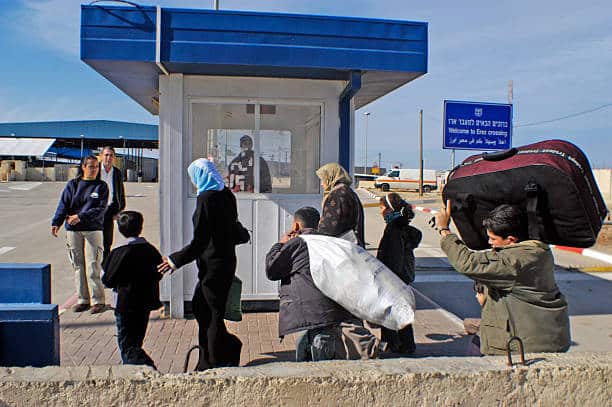
Canada’s Compassionate Response: Temporary Public Policy for Extended Family Affected by the Crisis in Gaza in 2024
January 9, 2024
Temporary Limitation on Study Permits for International Students in Canada
January 22, 2024Canada’s Atlantic provinces, with their breathtaking landscapes and vibrant communities, are beckoning individuals from around the world through the Atlantic Immigration Program. This unique initiative is opening doors for skilled workers, international graduates, and refugees, offering a pathway to a promising future in the picturesque Atlantic provinces. The Atlantic Immigration Program (AIP) is a collaborative immigration initiative between the federal government of Canada and the Atlantic provinces, including Nova Scotia, New Brunswick, Prince Edward Island, and Newfoundland and Labrador. The AIP aimed to address labor market challenges in the Atlantic region by attracting skilled immigrants to fill job vacancies and contribute to the economic growth of these provinces for jobs they haven’t been able to fill locally.
This program stands out as a beacon of opportunities, inviting individuals with diverse skills and backgrounds to contribute to the growth and vitality of the region. Whether you’re a skilled worker seeking career advancement, an international graduate aiming to kickstart your profession, or a refugee pursuing a new beginning, the Atlantic provinces offer a promising stage for your journey.
In this article, we delve into the key aspects of the Atlantic Immigration Program, exploring its eligibility criteria, the employment landscape, community integration, and the seamless application process.
How does the program work for employers?
To participate in the Atlantic Immigration Program, Canadian employers must first be recognized by being designated and then have their employment supported by the province.
There are several steps that every employer needs to follow in order to be approved by the program:
1. Employer Designation
By designated means:
- Possess a successfully running business
- Give details about the workforce requirements
- Make a commitment to collaborating on settlement and retention with a service provider organization
- Employer Position Endorsement
2. Take the required training
- Online onboarding training
- Intercultural competency training
3. Employer Position Endorsement
For a position to be recommended, an employer needs to:
- Prove that the attempts to hire locals have failed.
- Hire a foreign labourer
- Present the foreign worker with a legitimate full-time, non-seasonal job offer that is co-signed
- Need to work with a settlement organization to support the employee once the employee has identified his/her needs
4. Foreign Worker Immigration Application
Foreign workers who wish to seek permanent residency must:
- Possess a valid endorsement certificate from the province
- A work permit referral letter from the province is required for foreign employees who need one
- Companies that sponsor work permit applications are required to pay a compliance fee of $230, register on the federal employer site, and submit a job offer
How does the program work for candidates?
To immigrate to Atlantic Canada through this program, you must be either:
- a recent graduate of a recognized post-secondary institution in Atlantic Canada, or
- a skilled worker
Eligibility criteria:
1. Work Experience
Candidates must have worked at least 1,560 hours in the last five years in the same occupation as the job offer and covered by National Occupational Classification (NOC) TEER 0, 1, 2, 3, or 4. This is equal to 30 hours per week for a year and does not need to be continuous.
2. International Graduates
Candidates who are international graduates do not have to fulfill the work experience criteria if they:
- They have completed at least two years of study at an accredited institution in one of the four Atlantic provinces to get a degree, diploma, certificate, trade, or apprenticeship qualification
- They were enrolled in classes full-time during the period they spent studying
- They spent at least sixteen months residing in one of the four provinces
3. Education
- As a minimum, candidates who receive a job offer in NOC TEER 0 or 1 must hold an equivalent foreign qualification or a one-year Canadian post-secondary education credential
- Applicants who receive a job offer in NOC TEER 2, 3, or 4 are required to possess a high school diploma from Canada or its equivalent from outside the country
4. Language
- Level 5 in English or French for TEER 0, 1, 2 or 3
- Level 4 in English or French for TEER 4
5. Settlement Funds
Upon arrival in Canada, candidates must possess sufficient funds to sustain themselves and their families. The size of their family, including any dependents who are staying put, will determine how much they need. Applicants who are already working in Canada do not need to provide settlement funds.
Important note:
After getting an employment offer, candidates for all four Atlantic Immigration Program programs must submit a Settlement Plan, which is intended to assist while settling in Canada. This Settlement Plan is created together with a settlement service provider for candidates inside and outside of Canada.




